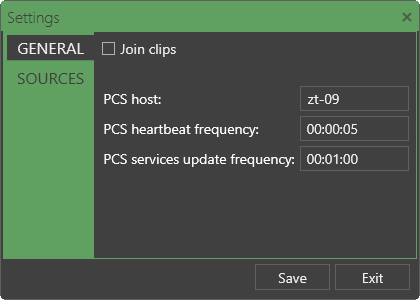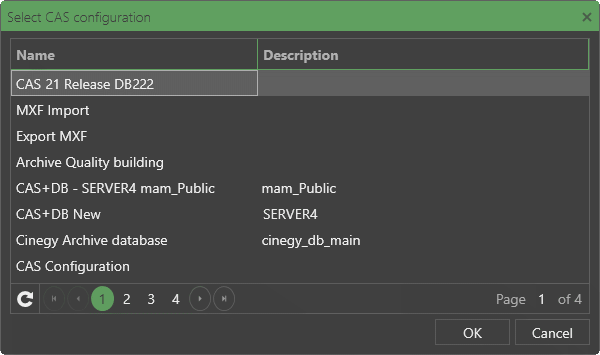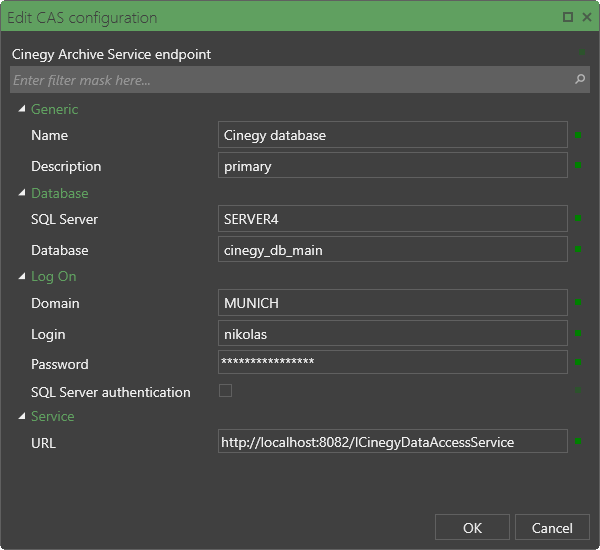Settings
Reading time ~3 minutes
|
Pressing the "Settings" button on the toolbar launches the following configuration window: |
|
General Settings
Here you can define the following settings:
-
Join clips – when this option is disabled, multiple individual clips / CineLink files are created; when enabled, it allows combining multiple clips into a single file with common metadata during transcoding.
NoteThe initial timecode for the resulting file is taken from the first clip in the selection.
-
PCS host – specifies the name or IP address of the machine where the Cinegy Process Coordination Service is installed;
-
Heartbeat frequency – time interval for the Cinegy PCS to report it is running properly.
-
PCS services update frequency – time interval for the Cinegy PCS to update information about the internal services used by clients.
Sources Settings
Here you can define which media sources should be displayed in the Location Explorer as the root elements similarly to those in Windows File Explorer:
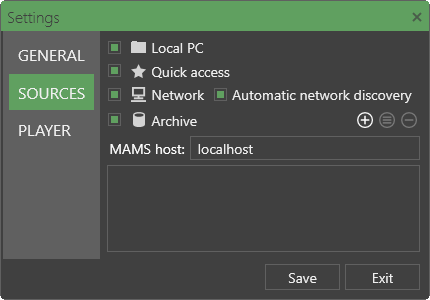
Here you can control the display of the following media sources:
-
Local PC
-
Quick access
-
Network
The "Automatic network discovery" switch enables and disables automatic network discovery when the "Network" source is activated. Disabling this feature can be particularly beneficial for large and complex networks, as it helps minimize extensive network load and prevents potential slowdowns in performance.
-
Archive
Archive Source
|
Caution
|
Using the Cinegy Archive source(s) is only available with the Cinegy Archive Service and the Cinegy MAM Service properly configured and running. |
To configure the archive source which will be displayed in the Location Explorer, select the "Archive" option:
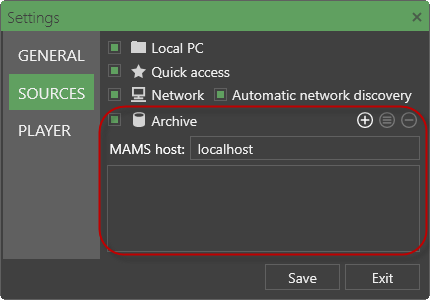
|
In the "MAMS host" field define the name of the server where the Cinegy MAM Service is launched. Then press this button to add a CAS profile. The following window appears displaying the list of all Cinegy Archive profiles created and registered in the Cinegy PCS: |
|
|
Here select the required profile and press "OK". |
Multiple CAS profiles can be selected; they will be displayed below the "MAMS host" field:
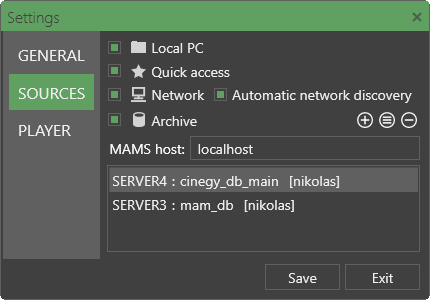
|
Press this button to edit the selected CAS profile; the following window appears: |
|
|
All the Cinegy Archive Service parameters are split into groups: |
|
Generic
Database
Log On
Service
|
|
Press this button to delete the selected CAS profile. |
|
Note
|
The Cinegy Convert Client log file is stored at the following path: С:\ProgramData\Cinegy\Cinegy Convert\[Version number]\Logs\ConvertClient.log. The log contains messages with log levels ordered by severity: [TRACE], [DEBUG], [INFO], [WARN], [ERROR], and [FATAL]. |
Player Settings
The "Player" tab provides user with the opportunity to choose the necessary quality for the player to preview the clips from the Cinegy Archive database (e.g., MCRItems).
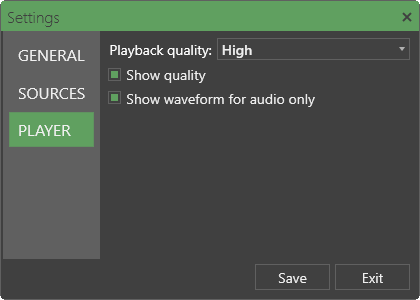
Use the "Playback quality" drop-down list to choose the required quality from the "High", "Medium" and "Low" options.
The "Show quality" parameter toggles the quality indicator in the top right corner of the preview frame, enabling or disabling its display. When enabled and the chosen quality is available, the indicator appears in green; otherwise, it appears in red:
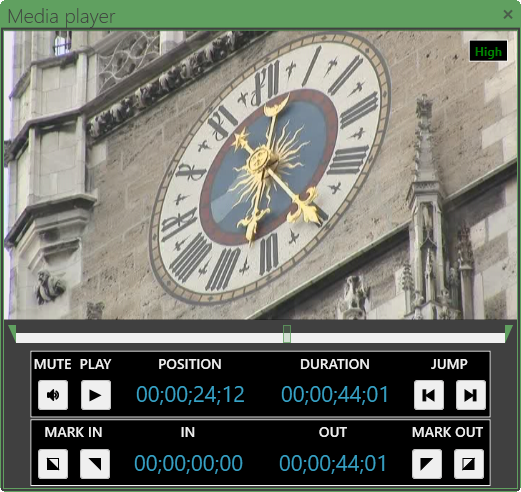
The "Show waveform for audio only" option enables waveform display for audio-only clips. When this option is disabled, the black frames are shown in the player instead.

